The plight of Shamima Begum and the forgotten foreign wives of Isis
While repatriation debates rage on, Shamima Begum, Hoda Muthana and other foreign wives of Isis wait in legal limbo. A new documentary, ‘The Return’, lets them tell their stories so we might better understand what went wrong, and what we can still do right, says Stephen Applebaum

When the US-backed Syrian Democratic Forces (SDF) defeated Isis in Baghouz in 2019, after a months-long battle over an area of land less than 700 square metres, it marked the end of the Islamic State’s caliphate. Supposedly a paradise for Muslims, the caliphate was, in fact, a place of horror. At its height, 8 million people lived in the suffocating grip of a criminal regime that used a distorted interpretation of Islamic law to maintain control through terror and brutality.
After Baghouz fell and western troops withdrew, the Kurds found themselves with almost 100,000 Isis captives on their hands. Some remained ideologically faithful to Isis, many didn’t. Almost all, though, if they came from overseas, were rejected by their home nations. From governments to opinion polls and newspaper headlines, the message to westerners who joined Isis has nearly always been the same: you are no longer welcome here.
While people debate the issue of repatriation, foreign wives of Isis fighters and their children wait in legal limbo in heavily-guarded camps. Among them, famously, is Shamima Begum, the Londoner who ran away to join Isis with two friends in 2015, aged 15. Now 21, and the only survivor, she is currently being held in al-Roj detention camp in northeastern Syria, close to the border with Iraq, unable to return to the UK after her British citizenship was revoked in 2019, rendering her stateless.
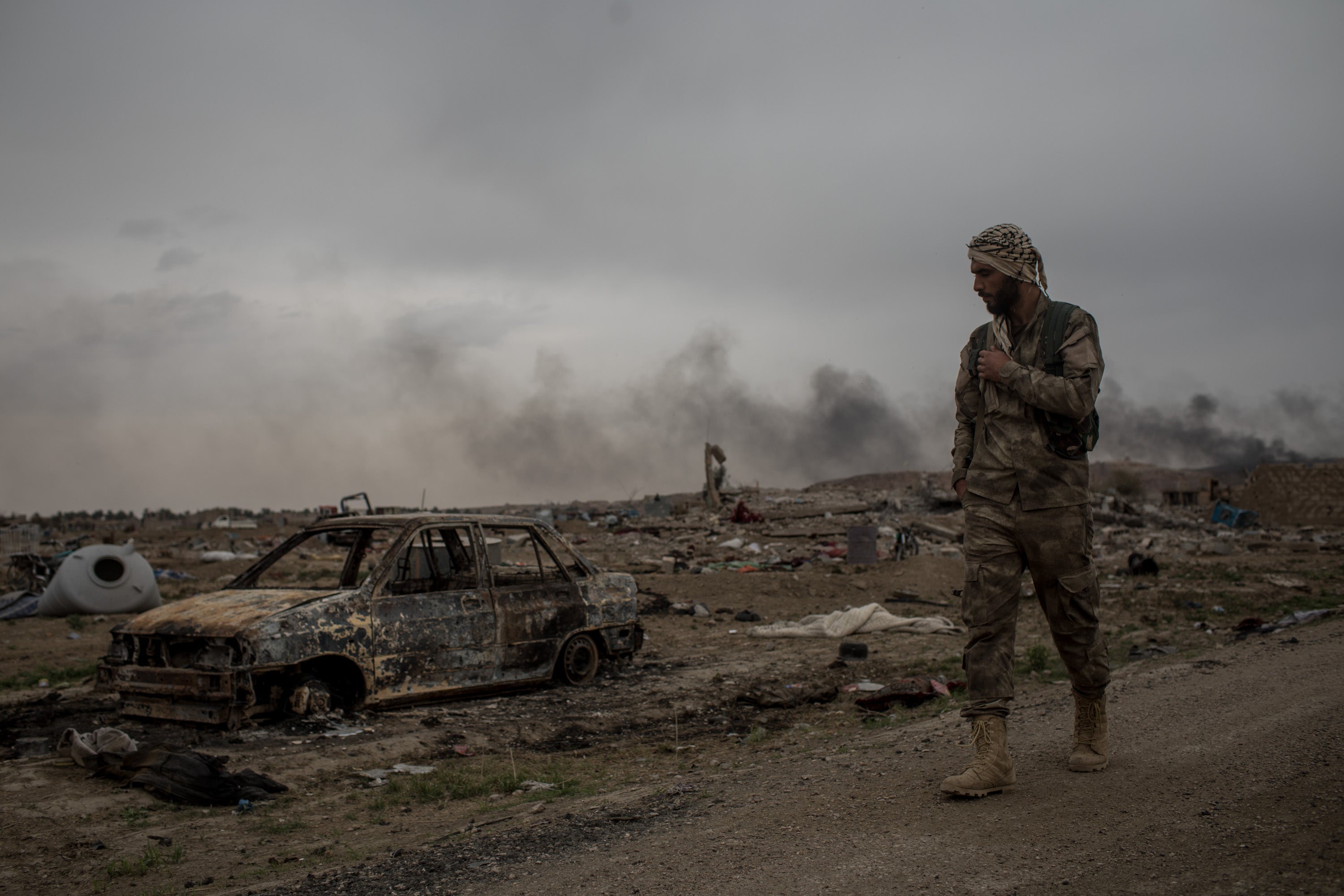
Although Begum’s situation is not unique, she is probably the most recognisable of the Isis wives featured in Spanish filmmaker Alba Sotorra Clua’s thought-provoking documentary The Return: Life After Isis, available on Sky Documentaries and Now TV.
Shot over two years in al-Roj – home to around 1,500 women and children from 56 different countries – the film explores the lives and choices of some of the women with compassion, a characteristic of the director’s approach since she set out to show that the “Axis of Evil was not a region of evil people” for her debut film. The Return reveals the extraordinarily brave work being done by Kurdish women who, says Clua, took responsibility for the people left behind while “western governments were still waiting, or not knowing what to do, or even, sometimes, washing their hands of this issue”.
Clua was perfectly placed to make the film. Working on front lines in Syria, she had seen up close what Isis was capable of while making Commander Arian, a 2018 documentary about a Kurdish women’s battalion advancing towards Kobane. She was present at the siege of Raqqa in 2017, and in Baghouz when the caliphate crumbled; she lost friends in the war; and in Kobane saw the piled-up corpses of women, children and old men massacred by Isis fighters.
I was very touched by a mother that ran out with a child in her arms. She was looking for help but when she reached the point where we were, the kid was already dead
“It was really heavy,” says Clua of the making of Commander Arian. “And it was probably the [film] that marked me the most, because I lived very extreme things I had never experienced before. That created a bond not only with the [de facto autonomous] Rojava region in northeastern Syria, but with the work the Kurdish women’s movement is doing there.”
For much of the war, Clua didn’t see Isis as human. “They were just the ones that were behind walls shooting at us,” she says. This changed when she encountered civilians escaping from Raqqa as the city was being bombed. “I didn’t interview any of them but I was very touched by a mother that ran out with a child in her arms. She was looking for help but when she reached the point where we were, the kid was already dead.”
Later, she interviewed a bereaved mother in Iraq whose two sons had been killed fighting for Isis. Clua remembers that it was a difficult conversation at first, because the woman was a loyal supporter. “When talking about violence against women or a stoning, she would say that’s the law, that’s Sharia, and the woman deserved it because of something she did.” Gradually, however, the director understood that “all the woman’s emotions were connected to her sons and she was thinking what they’d told her to think and defending them because they were dead.” So, what had initially seemed straightforward and egregious, actually “involved many emotions and a lot of open wounds”.

Pain was everywhere thanks to Isis, who’d spread violence, hatred, fear, and division. The suffering of the Kurds at their hands was immense, so Clua found it incredibly powerful and inspiring, after Raqqa, when she discovered that Kurdish women who had been fighting against Isis, “and who probably are the ones who faced Isis violence in the strongest way”, were now in charge of the detention camps for people fleeing Islamic State and taking care of women who had once been their enemies. “And they were doing it with a huge sense of humanity in accordance with their revolutionary ideals,” she says admiringly. “I was like, wow!”
Clua learned that Kurdish women’s rights activists were running a workshop for detainees in al-Roj in an attempt to transcend enmity and “open a bridge for dialogue … When I found out about this, I really wanted to see what would happen during this process. How would it be for Kurdish women to open up with a group of women who have been in Isis, and how would it be for these women who have been in Isis to be part of this workshop?”
By her also offering women like Begum and Hoda Muthana, a young American-born mother who’d tried to incite terrorist attacks in the US on Twitter, space to talk about themselves freely and in depth, and giving context to their stories, Clua hoped to go beyond the polarised drama of the women’s desire to return home and its opposition, and reach a more nuanced understanding of what had gone wrong, and, maybe, find some solutions to how to prevent others taking the wrong path in the future.
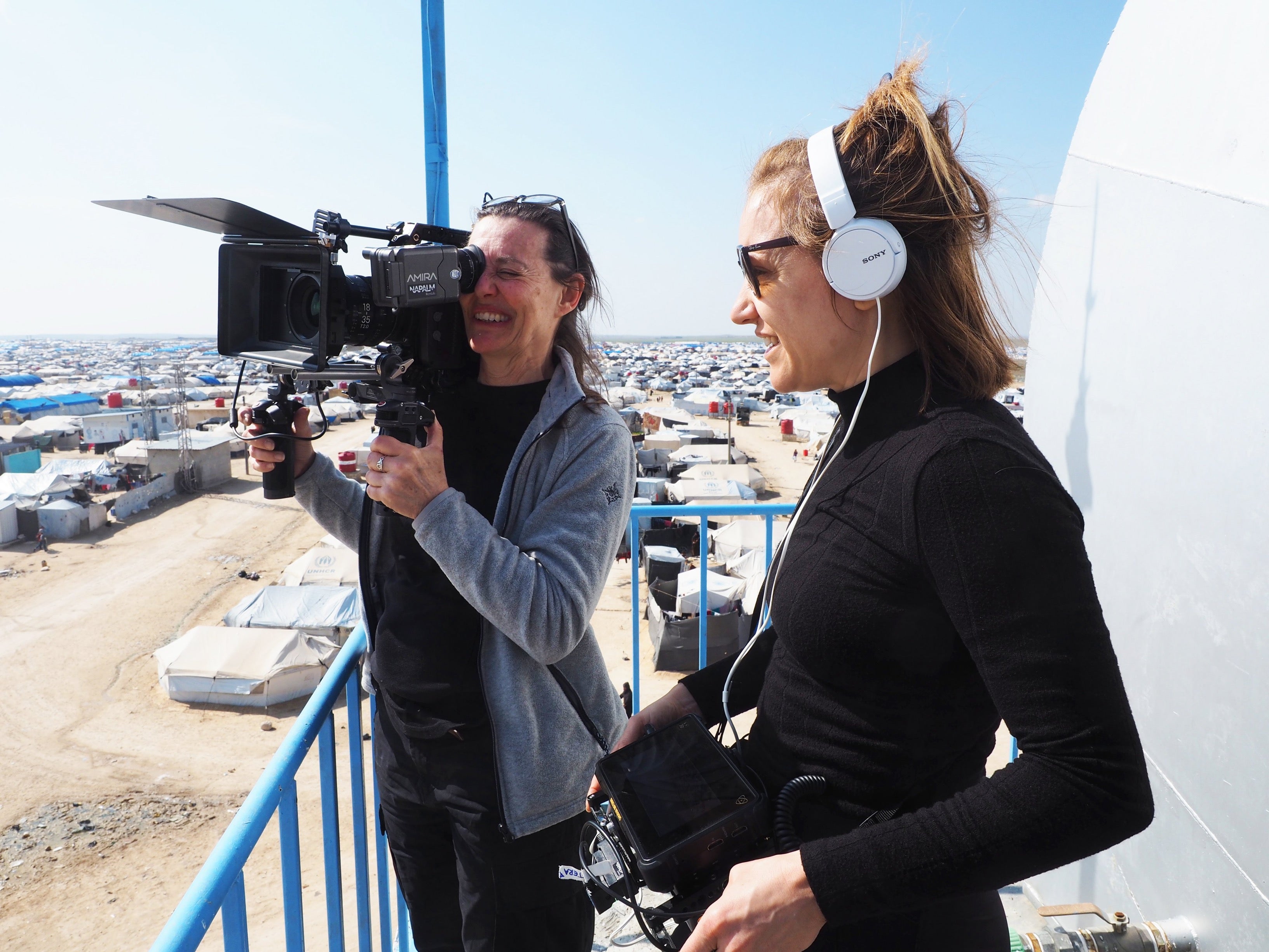
“Let’s move on from this [binary debate],” she says. “How can we move to a different perception? How can we look at this in a deeper way?”
A phone call from Commander Arian to the commander of al-Roj gained Clua and her mainly female Kurdish crew the kind of unfettered access that most journalists could only dream of. Even so, the director wasn’t initially keen on speaking to detainees, because of the anger she felt from what she had been through.
“I also had a lot of prejudices. I didn’t know who they were, so how could I deeply ask them things? And they were also not ready to talk to me. The first days I felt that they had like a speech, like a story that they had memorised because they were so scared of saying something that could compromise them … They also felt the media had mistreated them. They felt that journalists had twisted their words and they didn’t want to talk to any journalists. They didn’t know who we were, so it was a process.”
While Clua could understand, to an extent, why women in Syria and Iraq found themselves inside Isis – “Their families became Isis, and their children became Isis, and then it’s like a natural thing that a mother feels and thinks what her adult son is defending” – she’d found it hard to grasp while filming Commander Arian what young western women could have found so seductive about such a repressive and misogynistic order. In the documentary, it becomes clear that Isis’s mastery of propaganda and disinformation played a big role.
For many people, though, Begum will always be the woman in a black burka who callously told a reporter that she was ‘unfazed’ when she saw the discarded head of one of Isis’s victims in a bin
Depending on who the target was, Isis tailored its message for the strongest impact. For example, if someone was living in a country where they didn’t have free schooling and healthcare, they’d tell them the Islamic State would provide it. And if young mothers felt they weren’t free to follow Islam and live Islam in the way they wanted, because in some places it is forbidden to wear the niqab or they cannot school their children in an Islamic way, in the caliphate they would have complete religious freedom, in a society surrounded by Muslims, without pressure. “People fell for that,” says Clua. “They believed that.”
Begum and Muthana both cite the plight of Syrians, exploited by Isis in harrowing videos made to prick the conscience of the faithful, as part of their reason for travelling to Syria. As Muslims, they say they felt it was their duty to help.
“Young people are vulnerable to the narrative of injustice,” says Clua. “When you’re young, and you feel you live in an unjust world, you are very sensitive to this injustice and you want to do something to change it.”
Begum says she was a quiet child, with three outspoken, independent, strong older sisters, who didn’t fit in at home. Muthana talks about feeling like she had no future in America because her dream of becoming a business woman after leaving college was thwarted by her parents’ wish to push her into marriage – seeing nothing ahead of her, she gave up.
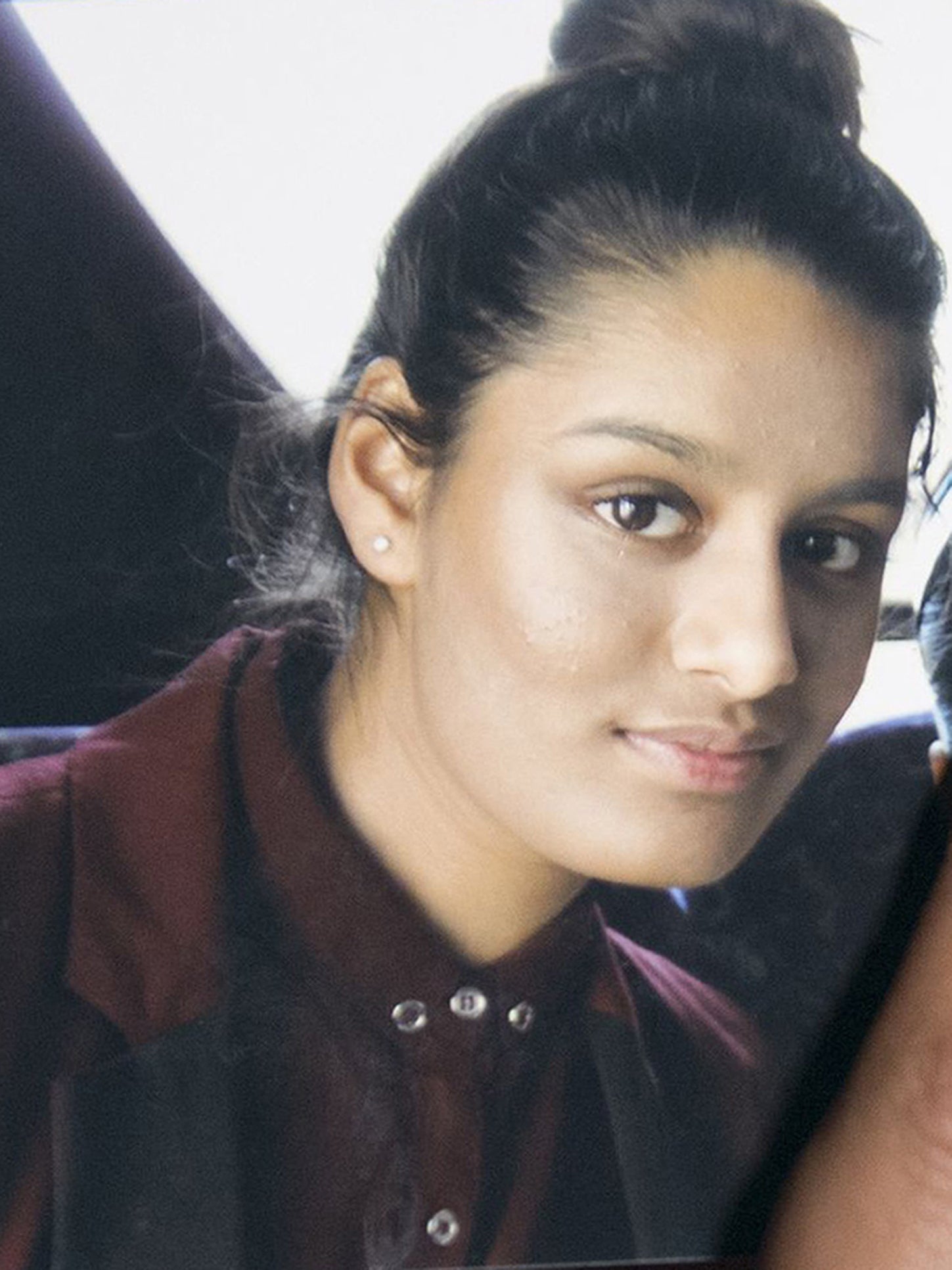
“I think it’s quite general that maybe most of the young women had that kind of situation that, as a teenager, it’s normal that you feel your mum doesn’t love you, that your mum doesn’t understand you, that your family doesn’t listen to you,” says Clua. “So, you feel marginalised not only because you’re Muslim and you feel that in your society you’re marginalised, but because as a teenager you feel that you’re marginalised by your family, everybody.”
Muthana thought she would find the freedom to become what she wanted in the caliphate. “And what an irony,” says Clua. “Instead, she ends up in the most despotic and repressive and brutal dictatorship where she had no freedom and was forced to get married.”
The Kurdish activists view the women as victims. Groomed online, they fell for Isis’s slick sales pitches because they landed where they were most vulnerable. For many people, though, Begum will always be the woman in a black burka who callously told a reporter that she was “unfazed” when she saw the discarded head of one of Isis’s victims in a bin.
Three years later, Begum, who also rejects the allegation that she was a gun-carrying member of the Isis morality police as a government lie, saying her youth, lack of religious knowledge, and inability to speak Arabic would have precluded her from such a role, claims her coldness was because she feared reprisals from Isis loyalists in the al-Hol camp where she was being held. Clua suggests we look at the bigger picture.
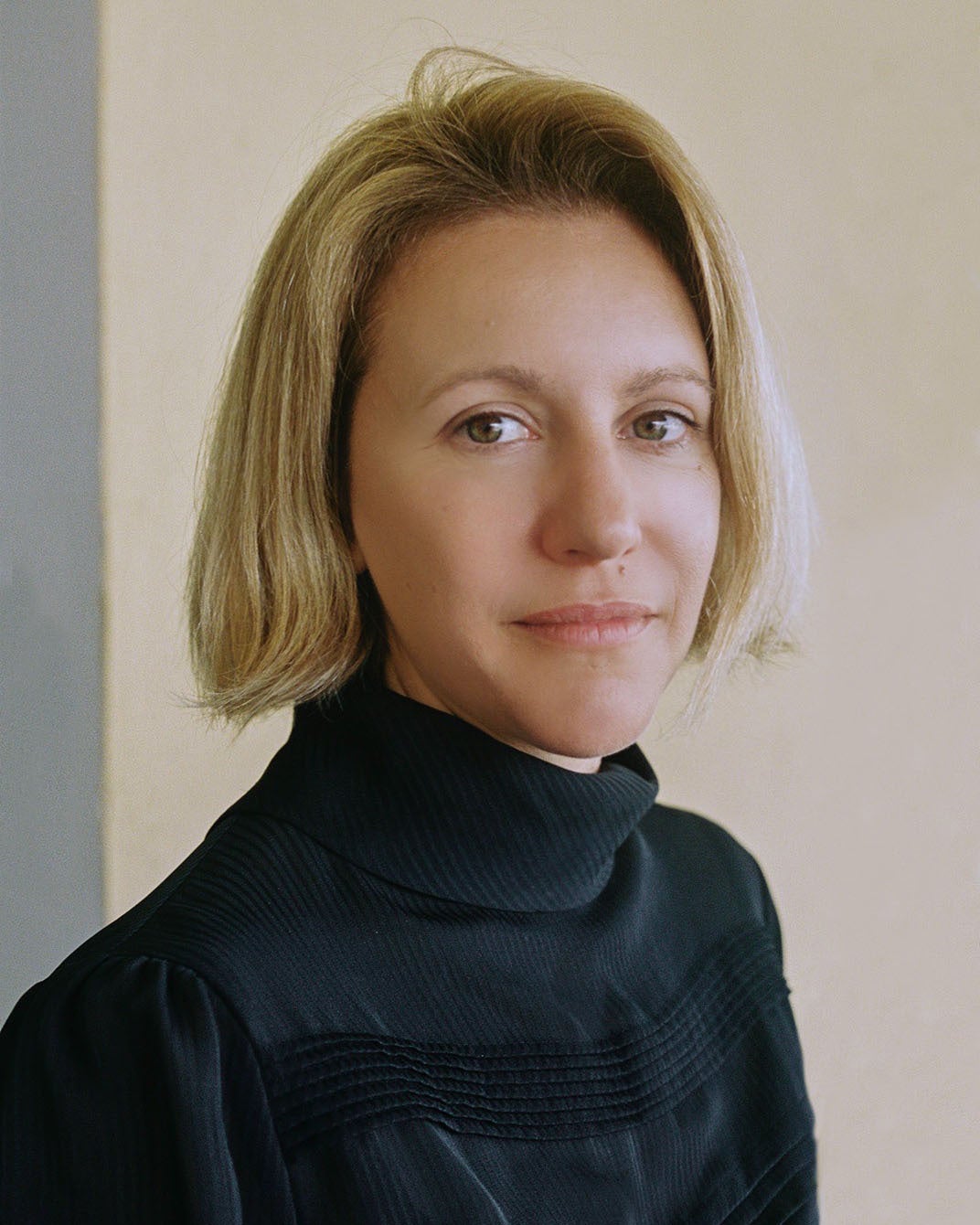
“I think it’s really important to put that interview in the context of the moment where it was done,” she says. “Shamima was very young and coming out of four years in a dictatorship that had not allowed her to think. Having been for more than a year under a very tough war situation, and having lost two children, she was deeply traumatised. And then if you add to this that you are in al-Hol, which is a very dangerous camp, where they kill women for what they say and what they do, I mean, unfortunately, I don’t think this context was explained to people.”
The tearful Begum we see in The Return is certainly softer, less affectless, although it’s for viewers to draw their own conclusions about her veracity. She had been in al-Roj for 10 months when Clua interviewed her, “and she’d had time to think, to reflect, to feel the pain she had been pushing down because of the need of survival,” says the filmmaker. “So, I think it’s very different listening now than we see in al-Hol in March 2019.”
Troubling, all the same, is the lack of remorse shown by the women. Muthana expresses horror at the treatment of Yazidis as sex slaves, but everyone is mostly focused on their own hurt, and the suffering of Isis’s other victims gets short shrift. Kimberly Gwen Polman, a Canadian-US empty-nester who was charmed online by a charismatic jihadist and now resents being trapped in the camp, is literally dumbstruck when one of the Kurdish mentors tells her that while she might not have personally killed anyone, her husband could have done. “She’s more difficult,” says Clua, pointing out that other women admitted they’d made a mistake. “She really feels she was lied to and she really feels she did nothing wrong.”
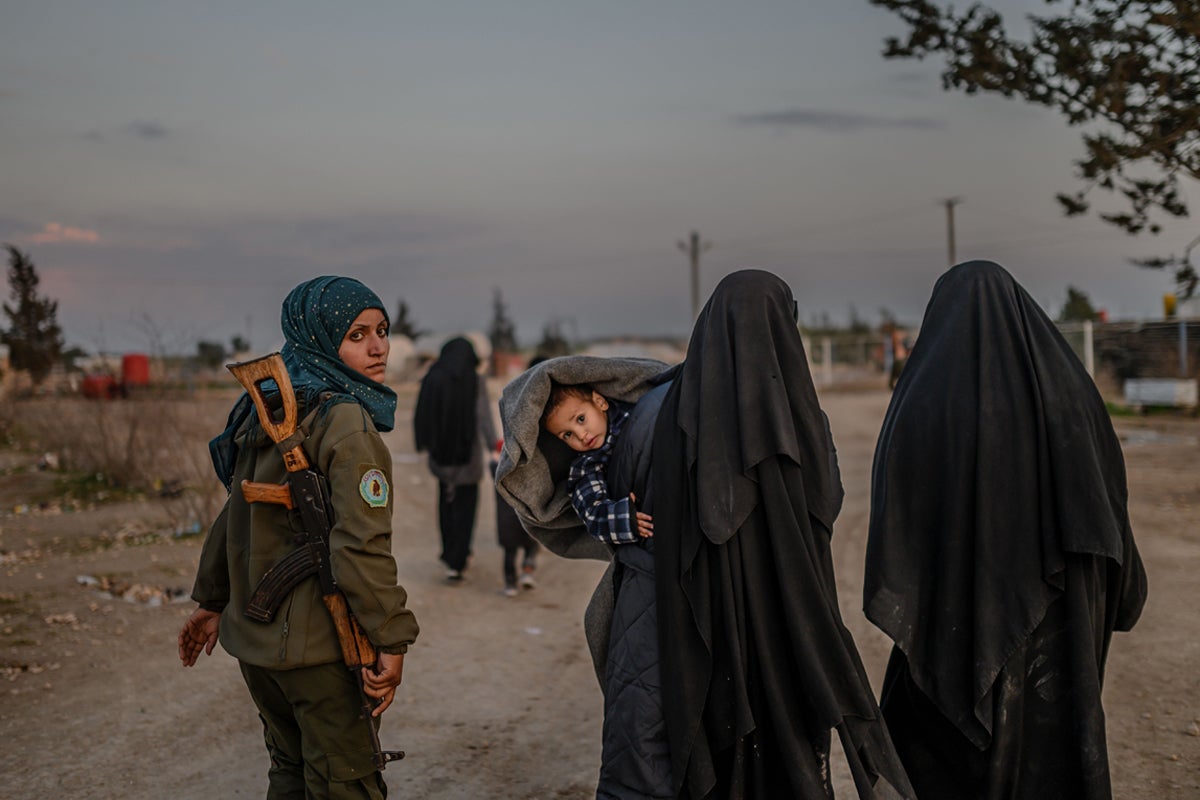
Nevertheless, Clua believes that all the women featured in the documentary should be repatriated.
“My understanding is that they were trafficked, and some of them were trafficked as minors, like Shamima. They were recruited to be used as wives to provide safe sexuality and children to the fighters in the Islamic State, and they were not expecting to be used this way.”
She likens Isis ideology to tentacles that have spread to many different countries, and by keeping thousands of women locked up without trial, she thinks an excuse is being handed to recruiters.
“They can say, ‘Look what they do to Muslim women. They hide them there. Look at the Muslim children dying from cholera in the dust in terrible camps.’ These are feelings that are helping recruiters to recruit people.”
Clua also argues that by leaving children in the camps, we’re storing up trouble down the road. Some of them have only ever known the Islamic State and places like al-Hol and al-Roj, “where there are still groups that are very, very radicalised. This is a timebomb,” she says. “If we want to work for our safety, we need to bring the children back and give them proper education and the chance and the hope that all children deserve.”
The women themselves, too, could be a powerful tool in the fight against radicalisation. In the camp, for the first time since living in the caliphate, they learned their own power as a group
The women themselves, too, could be a powerful tool in the fight against radicalisation. In the camp, for the first time since living in the caliphate, they learned their own power as a group. Doing the workshop meant resisting intimidation by hardcore Isis supporters, who also tried to sabotage the film. The women who didn’t quit found strength together.
“Under Isis, everybody was living with a lot of paranoia, and you never knew what the other person was thinking. So, you didn’t say what you think and you think you’re alone,” says Clua. “But in the workshop, they realised that they were not alone and that they’d had some of the same experiences and same feelings towards Isis, and were willing to leave all of that behind and start a new life. This made them stronger and helped them not only to be able to express what they were really thinking, but to move forward faster.”
If the women went through a kind of healing, so, it seems, did the director. She says research for her means “being part of the reality that I’m going to film, and this changes me somehow, or creates a very strong bond with whatever I’m filming.” In this case she entered al-Roj filled with anger, and appears to have left it more at peace, and with a greater awareness of the power of women in the fight against a threat that cannot be extirpated militarily.
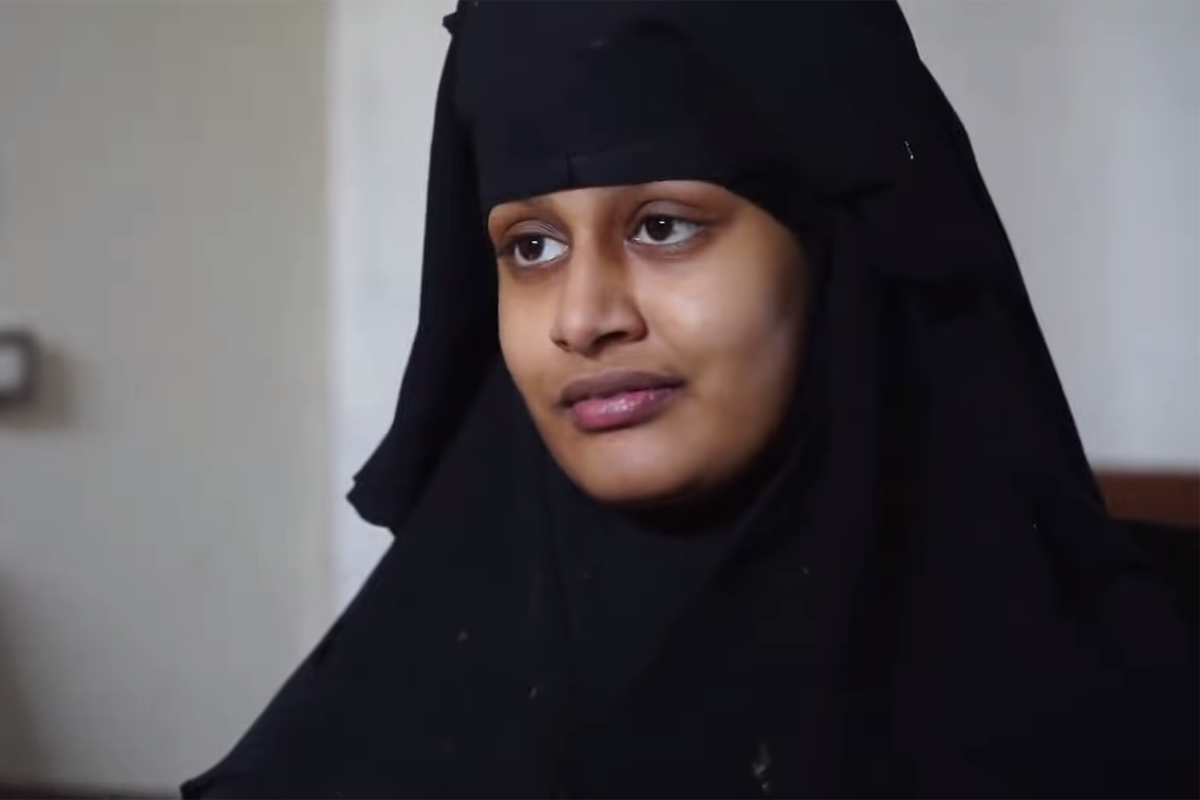
“Through just sitting and listening and trying to leave all this pain aside, and just trying to find a way out of all this violence, I realised how necessary and how important women are in these kinds of processes, because I think it is easier in a female context to be able to, even if it is very difficult, find a way out of a conflict that doesn’t go through arms.”
While many contend that women like Begum should not be allowed to go home, Clua believes that engagement is a vital part of the answer to weakening the allure of Isis.
“Many of these women are willing to actively participate in intervention programmes,” she says. “They can help us detect women that like them can be vulnerable to radicalisation and can be the voices that these other woman can listen to, because they have been through it. They have done the journey, so they will be respected for this.”
It may be an unpopular opinion but, says Clua: “If we want to understand what happened, we need to bring these women back and try to open a dialogue with them.”
Join our commenting forum
Join thought-provoking conversations, follow other Independent readers and see their replies
Comments
Bookmark popover
Removed from bookmarks